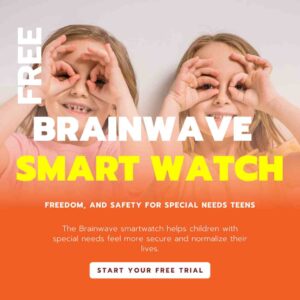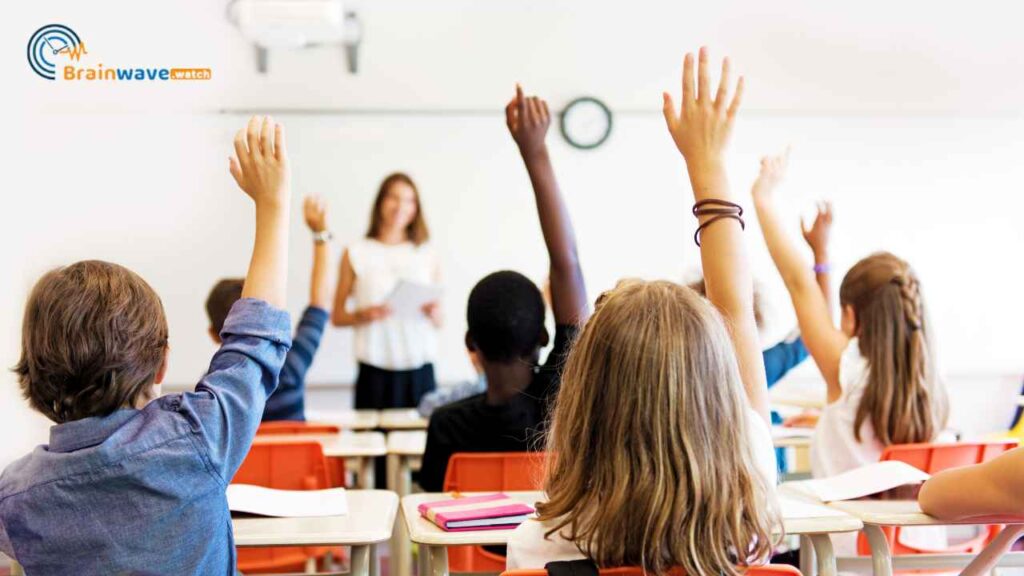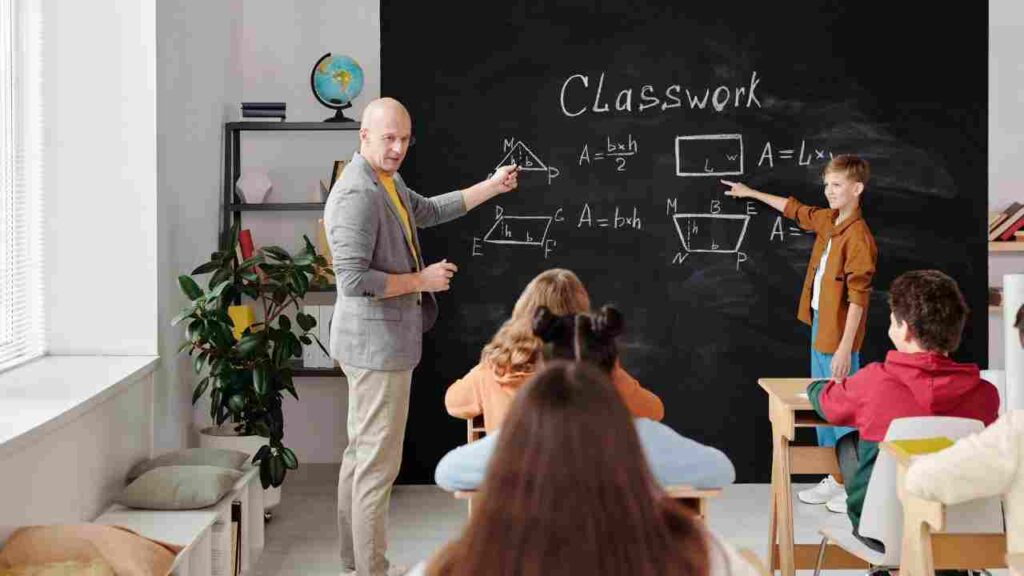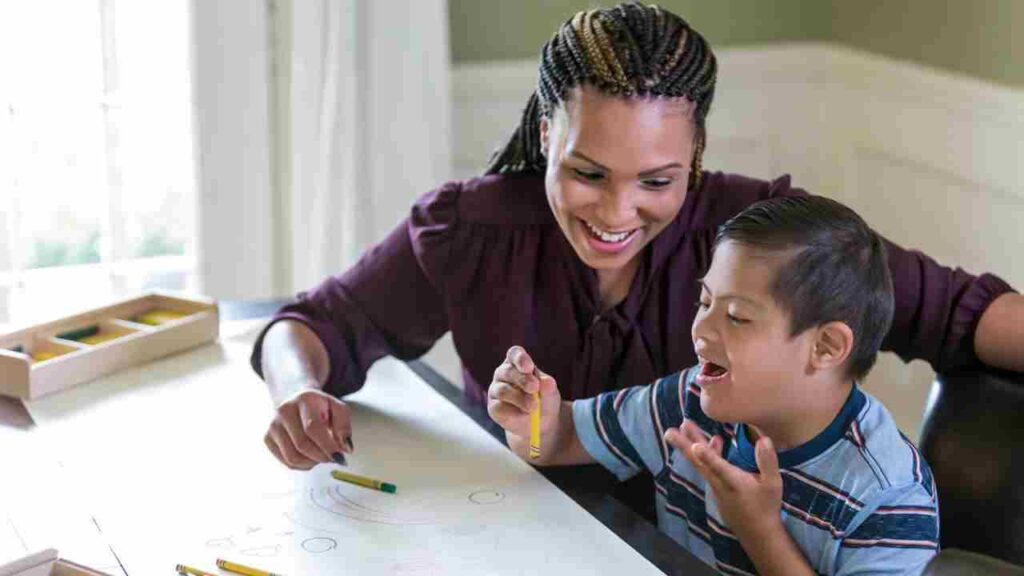Finding the right resources to support special education students can seem like an overwhelming and daunting task. Special education students require unique services, support, and resources in order to succeed. With the right resources, special education students can reach their full potential.
In this article, we will explore the many resources available to special education students, including local, state, and federal programs, online resources, IEPs, financial support, and more.
We will also provide an overview of the different types of special education programs, as well as discuss social, communication, and behavioral resources that can help special education students. By the end of this article, parents and teachers will be equipped with key resources, tips, and strategies to help special education students reach their maximum potential.
What is Special Education?
Special education is an individualized form of instruction provided to students with a range of mental, physical, and emotional disabilities. Special education services are created and tailored to address the individual needs of the student and are based on a comprehensive assessment of the student’s strengths, weaknesses, and overall skills.
Special education services are provided by trained professionals and involve a range of accommodations, modifications, and support services that are designed to help the student access the general education curriculum.
These services may include assistive technology, modified and alternate instruction, accommodations, therapies, and specialized instruction.
Finding the right resources for special education students can be an overwhelming and complicated process, but with the proper support and guidance, students can access services that can help them reach their full potential.
Types of Special Education Programs
When looking for resources for special education students, it is important to understand the different types of special education programs that are available. Depending on the student’s individual needs, they may require specific resources to help them succeed.
Some of the most common types of special education programs include Individualized Education Programs (IEPs), 504 Plans, and Response to Intervention (RTI).
IEPs provide students with a personalized education plan tailored to their specific needs. 504 Plans are for students with a disability that does not qualify for IEP services but still require special attention and support in order to reach their goals.
Lastly, RTI is a system that provides instruction and intervention before special education services are required. Each program has its own unique set of resources that can help special education students reach their full potential.
Read also: Implementing Special Needs Education: Essential Strategies
Finding Resources for Special Education Students

There are a variety of resources available for special education students, and it is important to find the right ones for the student’s unique situation.
Firstly, it is important to understand the child’s needs in order to determine which resources are best suited for them. Different resources can include educational materials, accommodations, support systems, and even therapy. Understanding the child’s individual needs is the first step to finding the correct resources.
Educational materials can include textbooks, learning tools, and software. Textbooks can be customized for the student’s individual learning needs, and instructional software can be used to assist with learning in the classroom. Learning tools, such as whiteboards and calculators, can also help in the classroom.
Accommodations such as extended test time and extra help can be made available for students who need it. The school district may have access to resources that provide additional support and assistance. The special education department should be contacted in order to discuss the student’s needs and have them evaluated.
Support systems such as mentoring programs, individualized instruction, and peer support can be beneficial to students. These resources can provide assistance in the areas of social and emotional development, as well as academics.
Therapy sessions can also be beneficial for students. Therapists can provide physical, occupational, and speech therapy. They can assist in the areas of communication, behavior, and self-regulation. Therapists can evaluate their clients and create an individualized plan in order to better meet their needs.
In addition to these resources, it may be helpful to find support for the entire family. Organizations and programs offer assistance for parents, such as respite services and support groups. This can help parents better understand and support their children.
Finding the right resources is an important step toward providing the best education for special education students. Taking the time to understand the student’s individual needs and researching the available resources can provide the best outcome.
1. Local Resources
Finding the right resources for special education students can be a daunting task. Thankfully, many areas have local resources available to help. These may include local schools, educational advocacy groups, and even specialized medical professionals.
It is important to research the available resources in your local area and make sure the solutions provided are best for your particular needs and situation. Local organizations may offer support and advice, such as conferences, workshops, and other resources designed to provide assistance with finding the best solutions.
It is also important to establish a network of contacts within the special education community and to stay informed on the latest developments in the field. With these resources at hand, special education students can find the help they need to succeed.
Read also: Education Considerations for Students with Autism
2. State and Federal Programs
When it comes to finding resources for special education students, state and federal programs offer a wide range of support. Many states offer grants and other financial assistance for families in need as well as services to help students transition from high school to college and beyond.
The federal government offers several programs such as the Individuals with Disabilities Education Act (IDEA), the Rehabilitation Act of 1973, and the No Child Left Behind Act, which provide public and private funding for special education programs and services.
With these programs, special education students can access the resources they need to succeed.
3. Online Resources
The internet can be a great resource for finding the right materials and support for special education students. There are a variety of websites and apps that provide helpful information and support for students with special needs.
From online learning resources to online support groups, these websites and apps can offer invaluable guidance and support to those looking for information or resources to help them navigate the special education system.
Many of these websites also provide helpful tools such as apps that track student progress and help connect families with local services. With the right online resources, families can find the right tools and resources to help their special education students succeed.
Utilizing Resources

One of the most important special education resources available is access to special education teachers and support staff. These professionals are committed to helping students with special needs succeed. They provide individualized instruction and create individual learning plans that cater to the needs of each student. They also help to ensure that the necessary accommodations and modifications are in place to help the student achieve success.
Other resources for special needs students include materials, programs, and services designed to help them succeed. Schools often provide access to materials like textbooks, manipulatives, and supplemental materials that are specifically designed for special needs students.
Special programs such as speech and language therapy, occupational therapy, and physical therapy can help students learn the skills they need to be successful. In addition, a variety of services are available to help provide emotional and mental support to special needs students.
There are many other resources available to special needs students and their families. Parent-teacher organizations, support groups, and advocacy organizations are all great resources. These resources can provide guidance and support to help parents and teachers create an individualized learning plan that meets the student’s unique needs.
Finding the right resources for special education students can be a challenge, but it is essential to ensure that all students get the education and support they need to succeed. By utilizing the resources available, families, educators, and students can work together to create an individualized plan that caters to the needs of the student. With the right resources and support, special education students can achieve success.
1. Writing an IEP
Writing an Individualized Education Plan (IEP) is a critically important step in helping special education students reach their educational goals. It can be a daunting task, especially if you don’t have the right resources.
To help, start by looking for qualified professionals such as psychologists, counselors, or special education teachers to help create an effective IEP. Additionally, talk to your school district to learn about IEP services available to special education students.
Also, look for reliable online resources from the U.S. Department of Education and the Individuals with Disabilities Education Act (IDEA) to access important information about developing an IEP.
Finding the right resources for special education students can help ensure that IEPs are comprehensive and tailored to meet the unique needs of each student.
2. Accessing Financial Support
For special education students, accessing financial support for educational needs can be challenging. Fortunately, there are several resources available to help you find the support you need.
The federal government provides funding for special education through the Individuals with Disabilities Education Act (IDEA), and many states also provide additional support.
Private scholarships and grants are available from a variety of organizations. Citizens and non-citizens alike may qualify for these resources, so it’s worth checking to see what’s available.
Social service agencies and community organizations can provide essential assistance with finding and applying for financial aid. By taking advantage of these resources, special education students can secure the funding they need for their educational needs.
Additional Considerations

The resources that are available to students with disabilities should be carefully evaluated to ensure they are best suited to the student’s needs.
When evaluating resources, it is important to look for learning materials that can be adapted to the individual student and their particular learning styles. For example, a student with a hearing impairment may need resources that are specially designed for their disability in order to gain the most benefit from the materials.
Similarly, a student with a visual impairment may need resources that are designed for their disability in order to access the materials.
Furthermore, it is important to consider the cost of the resources. Many resources for special education students are expensive and may be cost-prohibitive for some families. However, resources are also available from a variety of sources, such as government agencies and non-profit organizations, which may offer resources at a reduced cost or for free.
It is important to research these organizations to determine if they offer the resources that are needed, and if so, the cost associated with them.
It is essential to look for resources that are age-appropriate. For example, resources for elementary students should be tailored to their interests and needs, while resources for older students should be more advanced. It is also important to find resources that are aligned with the student’s individual needs and learning style.
For example, some students may benefit from materials that are more visual, while others may be more comfortable with materials that are more textual.
Finally, it is important to consider the support that is available to the student after they obtain the resources. Many resources are accompanied by support materials and tools, such as tutorials or discussion forums, which can help the student understand and use the materials more effectively.
Some organizations may offer additional support and guidance for the student, such as mentors or counselors. It is important to research these services to determine how they can be beneficial to the student.
1. Communicating with Teachers and Staff
When it comes to finding the right resources for special education students, it is important for parents and guardians to understand how to effectively communicate with their student’s teachers and staff.
Establishing good communication with school staff can help ensure that your student’s needs are properly addressed.
Parents and guardians should reach out to their student’s teachers and staff members to ask questions and discuss potential solutions for their student’s unique learning needs.
It is also important to stay up-to-date on any important changes in state or school policies that may affect the resources available to special education students.
If you need additional help and support, reach out to your student’s school counselor or district special education office for assistance.
2. Parental Involvement
Parents play a crucial role in the education of their special education students. They must become actively involved in the process of finding resources, understanding their child’s needs, and developing a plan to meet them.
Parents should be aware of their rights and the available resources available so that they can help their children make the most of their education. Parents should speak with their child’s school, teacher, and school district to understand the resources available to their special education student.
Parents should also speak to other parents of special education students to get their perspectives and access to support networks and resources. By liaising with the school and other parents, parents gain access to resources that can be used to ensure the best possible educational experience for their special education student.
3. Inclusion in Mainstream Education
Inclusion in mainstream education is an important part of special education. It allows for students with special needs to be included in their regular classroom with support and additional assistance when needed.
There are many different resources available to special education students, such as specialized teaching strategies, modifications, and accommodations that can help them to reach their potential in the classroom.
It is important to find the right resources for each individual student to ensure that they are receiving the best support possible.
There are a variety of programs available to help special education students and their families to access quality resources and services.
4. Transition to Adulthood
Navigating the transition to adulthood can be difficult for special education students, but with the right resources in place, it can be achieved. Finding the resources that best fit the individual needs of a student is the key.
Parents, teachers, and counselors can work together to determine the most suitable education and support options for each student.
The most important thing to remember is that each special education student should have access to the same opportunities and resources that are available to their peers.
Organizations such as the National Disabilities Rights Network and the Council for Exceptional Children provide helpful resources for special education students and their families. With the right support and resources, special education students can transition to adulthood and reach their full potential.
Read also: How to Help Your Child with Autism Thrive
Social, Communication, and Behavioral Resources

Firstly, it is important to provide special education students with access to social resources. These can include social and recreational activities, as well as access to mentors or role models who can provide guidance and encouragement.
Such resources can be found in a variety of places, such as through local community centers, special education programs, and even online. Additionally, connecting with organizations such as Parent-to-Parent organizations can also provide students with access to a network of families who can provide support and resources.
Communication resources can also be important for special education students. This can include providing access to assistive technology such as speech-generating devices and communication boards. Additionally, providing access to tools that can help students create visual schedules or communicate their needs can also be incredibly useful. These resources can be found through organizations that specialize in special education, as well as through local schools and libraries.
Behavioral resources can also be an important part of helping special education students. Strategies such as positive behavior support (PBS) can be effective in helping students develop positive behaviors and reduce challenging behaviors. Additionally, access to resources such as sensory rooms or sensory toys can also be helpful in enabling students to better manage their emotions and behavior.
These are just a few of the many resources that are available to special education students. Finding the right resources can be a challenge, but with perseverance and research, it is possible to find the resources that can make a real difference.
1. Developing Social Skills
Developing social skills is an important part of the special education process. It can provide children with disabilities the opportunity to develop meaningful relationships, build self-esteem, and increase their ability to interact with the world around them.
To help special education students develop these skills, there are a variety of resources available. This includes structured activities such as role-playing and structured conversations, as well as resources such as books, videos, and online communities.
With the right focus, special education students can gain the tools they need to become active, engaged members of their communities.
2. Communication Techniques
Communication is a critical component of success when it comes to special education students. It is important for both the student and the teacher to have effective communication strategies.
For special education teachers, communication techniques such as visual cues, small group discussions, and flexible seating arrangements can be used to facilitate student-teacher communication.
For students, speech therapy, social stories, and communication boards or apps can be effective tools for expressing their needs and wants in a safe, non-threatening way.
By finding the right resources for special education students and implementing these strategies, teachers can ensure that communication between students and teachers is a priority in the classroom.
3. Behavioral Interventions
Behavioral interventions can be an effective tool for special education students. Such strategies can help reduce disruptive behavior and improve student engagement in the classroom.
Educators and caregivers can use positive reinforcement strategies, such as creating an environment that encourages respect and cooperation, as well as providing incentives for good behavior.
A behavior specialist or mental health counselor can be brought in to create a personalized plan to help the student manage their behavior.
With the right resources, special education students can learn to make positive behavioral changes that will ultimately lead to better educational outcomes.
Conclusion
Finding the right resources for special education students can be challenging, but with the right guidance, parents, teachers, and advisors can work together to ensure that they find the best programs and resources to help their students succeed.
Parents have the responsibility of learning about their child’s individual needs, taking time to research and understand the options available for special education, and advocating for the support their child needs.
Teachers, who are the frontline of support for students, must ensure that they are knowledgeable about the programs and resources available, communicate with parents and administrators, and collaborate with other professionals.
Special education advisors are also invaluable in finding appropriate services and programs for students as well as providing support throughout the process.
Ultimately, finding the right resources for special education students requires knowledge, patience, and collaboration among all stakeholders. With the right information and support, special education students can achieve success both in the classroom and beyond.







